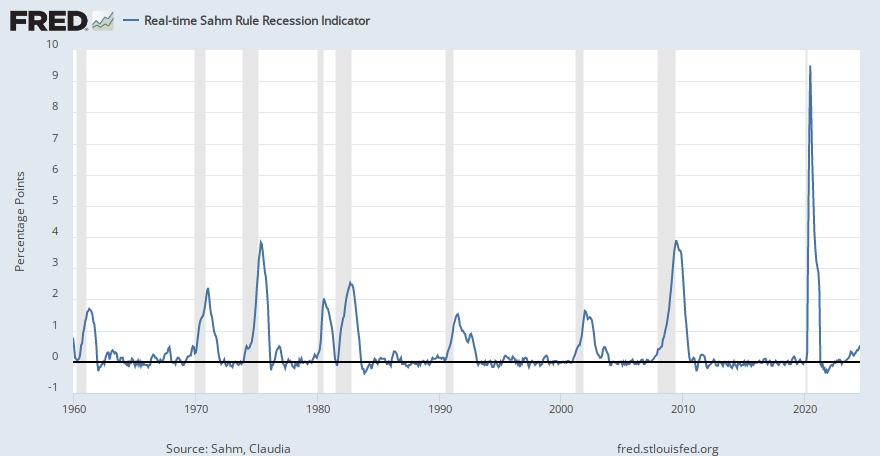https://www.marketwatch.com/livecoverage/stock-market-today-dow-futures-flat-after-1000-point-rally-in-four-days/card/a-reliable-labor-market-recession-indicator-has-triggered-but-this-time-it-could-be-bullish-for-stocks-sXgJRUlCo2TNywR6XgDc
The Sahm rule is a robust tool that has been very accurate in identifying a downturn in the business cycle and almost always doesn't trigger outside of a recession. The simplicity of the calculation contributes to its reliability. The Sahm rule signals the early stages (onset) of a recession and generated only two false positive recession alerts since the year 1959 (there have been 11 recessions since 1950); in both instances — in 1959 and 1969 — it was just a little untimely, with the recession warning appearing a few months before a slide in the U.S. economy began.[13] In the case of the false positive warning related to the year 1959 it was followed by an actual recession six months later. The Sahm rule typically signals a recession before GDP data makes it clear.
https://en.m.wikipedia.org/wiki/Sahm_rule
Well now, it seems like our economic situation is a whole lot like ol' Joe Biden - not exactly thrivin'. Turns out that the dems have been doing some serious gaslighting.
While the historical performance and timeliness of the Sahm rule has been very accurate, the reliability of the Sahm rule in today's economy has been questioned due to several distortions and there is reason to believe that the economy might act differently this time around due to unique unusual conditions[citation needed].
Citation needed indeed. This paragraph seems almost hand crafted by a Biden stan salty about biden's failures.
Oversimplifying, an uptick in the unemployment trend means a recession is on the way.
Sahm Recession Indicator signals the start of a recession when the three-month moving average of the national unemployment rate (U3) rises by 0.50 percentage points or more relative to the minimum of the three-month averages from the previous 12 months.




